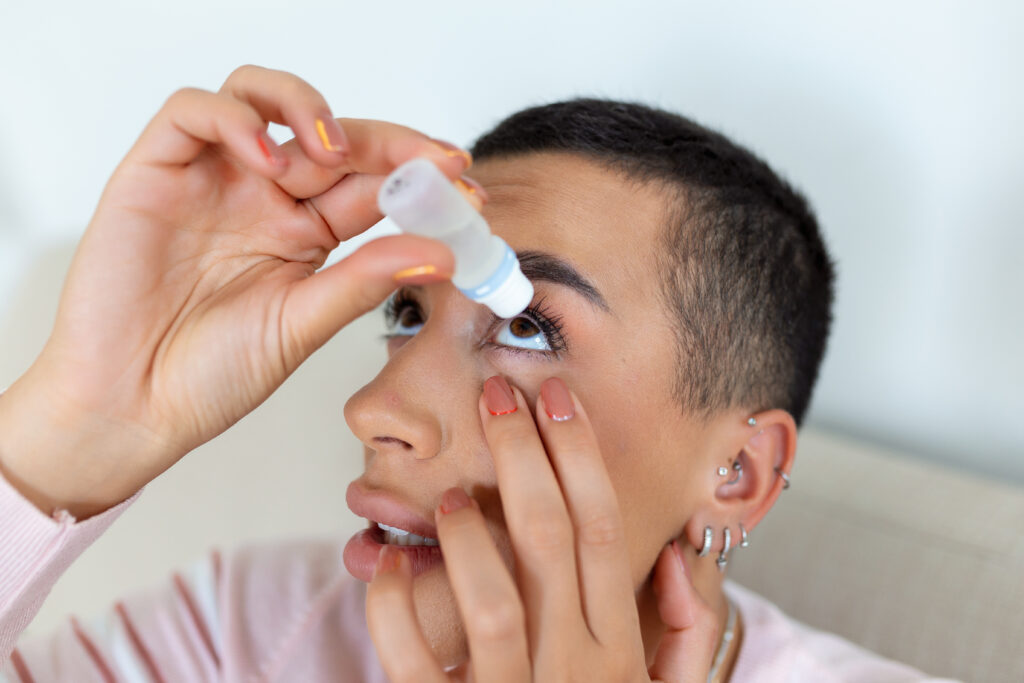Understanding and Preventing Eye Flu: Tips for Eye Health
Maintaining good eye health is crucial for overall well-being. While most people are familiar with common eye conditions like pink eye or conjunctivitis, another lesser-known concern is “eye flu.” This phenomenon, often referred to as viral conjunctivitis, can lead to discomfort and irritation in the eyes. In this article, we will delve into what eye flu is, its symptoms, and most importantly, how to prevent it.
What is Eye Flu (Viral Conjunctivitis)?
Eye flu, or viral conjunctivitis, is a highly contagious infection of the outer layer of the eye and the inner surface of the eyelid. It is commonly caused by adenoviruses, the same family of viruses that can cause respiratory infections and the common cold. Eye flu can spread rapidly, especially in environments where people are in close contact, such as schools, workplaces, and healthcare settings.

Symptoms of Eye Flu:
- Redness and inflammation of the whites of the eyes
- Watery or mucous discharge from the eyes
- Itching or burning sensation
- Sensitivity to light
- Gritty feeling or the sensation of a foreign body in the eye
- Crusty eyelids, especially upon waking
Preventing Eye Flu:
While it’s difficult to completely eliminate the risk of contracting eye flu, there are several effective measures individuals can take to minimize their chances of infection:
- Practice Good Hygiene:
- Wash your hands frequently with soap and water for at least 20 seconds, especially after touching surfaces that may harbor viruses.
- Avoid touching your face, particularly your eyes, with unwashed hands.
- Avoid Close Contact:
- If you know someone has eye flu, try to maintain a safe distance to prevent direct transmission.
- Disinfect and Clean:
- Regularly disinfect commonly touched surfaces, such as doorknobs, shared electronics, and workspaces.
- Avoid Sharing Personal Items:
- Refrain from sharing items like towels, makeup, or contact lenses, which could potentially carry the virus.
- Proper Contact Lens Care:
- If you wear contact lenses, practice meticulous hygiene when handling them. Wash your hands before insertion and removal, and follow your eye care professional’s recommendations for cleaning and storing your lenses.
- Avoid Rubbing Your Eyes:
- Touching and rubbing your eyes can introduce viruses and bacteria, increasing the risk of infection. If your eyes are itchy or irritated, use a clean tissue to gently pat them.
- Maintain a Healthy Lifestyle:
- A strong immune system can help your body fight off infections. Eat a balanced diet rich in fruits, vegetables, and whole grains, stay hydrated, and get enough sleep.
- Follow Medical Advice:
- If you suspect you have eye flu, seek medical attention promptly. Follow your doctor’s recommendations for treatment and prevention of further spread.

Prioritizing eye health is essential for a vibrant and active life. By practicing good hygiene, avoiding close contact with infected individuals, and following preventive measures, you can significantly reduce your risk of contracting eye flu or other eye infections. Remember, your eyes are precious, and taking proactive steps to care for them will contribute to your overall health and well-being.








